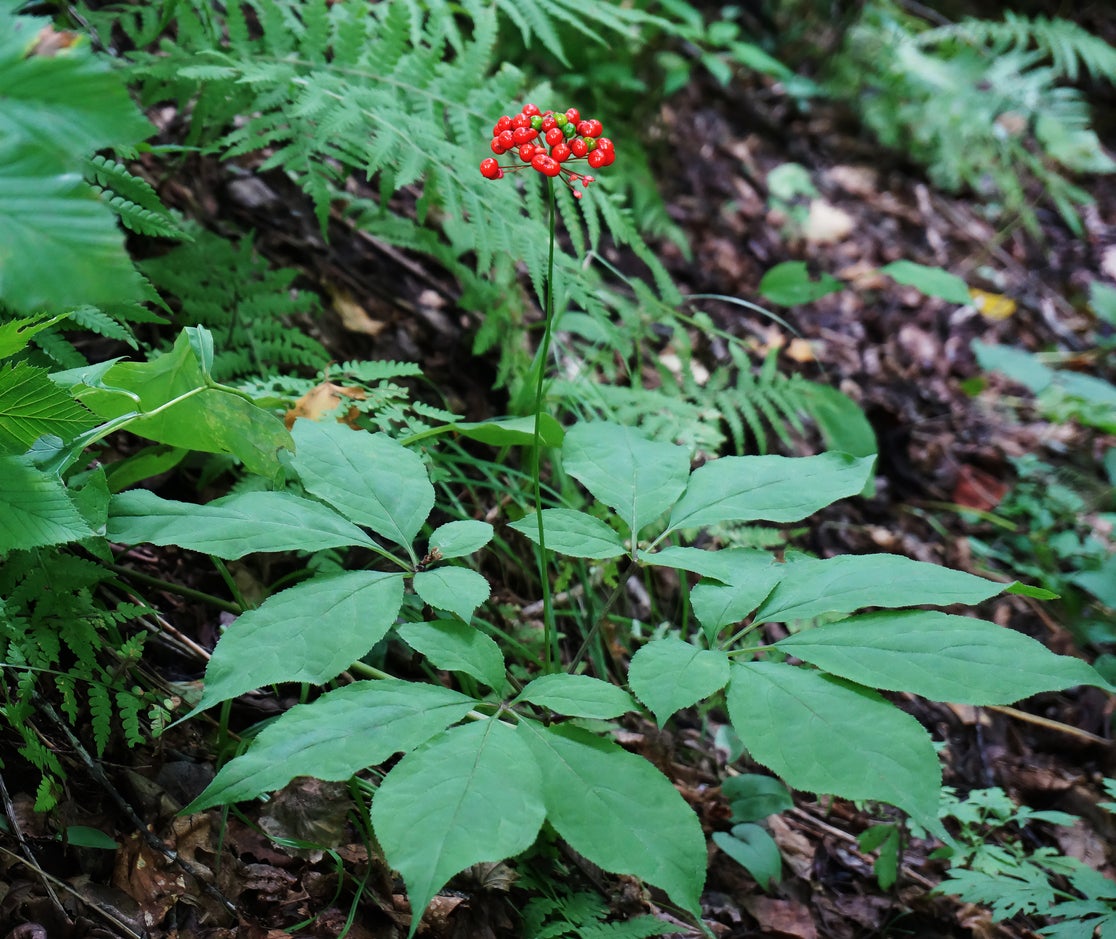Potted Ginseng Care: Can You Grow Ginseng In Containers


Sign up for the Gardening Know How newsletter today and receive a free copy of our e-book "How to Grow Delicious Tomatoes".
You are now subscribed
Your newsletter sign-up was successful
Ginseng (Panax spp.) is a plant that has been used for thousands of years in Asia. It is an herbaceous perennial and often cultivated for medicinal use. Growing ginseng requires patience and careful maintenance. It prefers to grow outdoors, either in beds or in pots. If you have questions about growing ginseng in containers, read on. We’ll give you information about potted ginseng including tips to help container-grown ginseng thrive.
Growing Ginseng in Planters
It may surprise you to learn that ginseng is native to North America as well as East Asia. It has dark, smooth leaves with toothed edges and tiny white flowers that develop into red berries. However, ginseng’s primary claim to fame comes from its roots. The Chinese have used ginseng root medicinally for millennium. It is said to stop inflammation, improve cognitive power, lessen anxiety, and restore vitality.
Ginseng is available in this county as a supplement and also in tea form. However, you can grow your own ginseng in planters or pots if you don’t mind the wait. Before you embark on growing potted ginseng, you should realize that it is a slow and long process. Whether you opt for container-grown ginseng or plant it in a garden bed, the plant roots do not mature until four to ten years have passed.
How to Grow Ginseng in Containers
Ginseng in a pot can be cultivated outdoors in temperate regions. The plant prefers an outdoor location and adapts to both frost and mild drought conditions. You can also grow potted ginseng indoors.
Pick a container about 15 inches (40 cm.) in diameter, and be sure it has drainage holes. Use light, slightly acidic potting soil that drains well.
You can grow ginseng from seed or from seedlings. Note that seeds can take up to a year and a half to germinate. They require up to six months of stratification (in the refrigerator in sand or peat), but you can also buy stratified seeds. Plant them in the fall 1 ½ inches (4 cm.) deep.
To start growing ginseng in containers, it is faster to buy seedlings. The prices will vary by age of the seedling. Remember that it will take years for the plant to reach maturity.
Sign up for the Gardening Know How newsletter today and receive a free copy of our e-book "How to Grow Delicious Tomatoes".
It’s important to place the containers out of direct sun. The plants require significant shade and only dappled sunlight. Don’t fertilize ginseng, but water potted ginseng to keep the soil moist.

Teo Spengler is a master gardener and a docent at the San Francisco Botanical Garden, where she hosts public tours. She has studied horticulture and written about nature, trees, plants, and gardening for more than two decades, following a career as an attorney and legal writer. Her extended family includes some 30 houseplants and hundreds of outdoor plants, including 250 trees, which are her main passion. Spengler currently splits her life between San Francisco and the French Basque Country, though she was raised in Alaska, giving her experience of gardening in a range of climates.